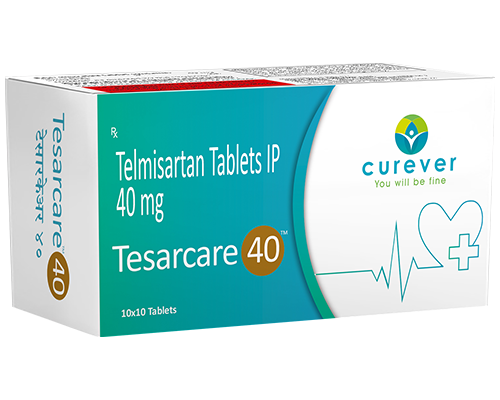•It is important to tell your doctor or pharmacist what medicines you are taking, including those bought without a prescription and herbal medicines, before you start treatment with this medicine. Likewise, always check with your doctor or pharmacist before taking any other medicines during treatment with this one so that they can make sure that the combination is safe.
Telmisartan has an additive effect with other medicines that decrease blood pressure, particularly other medicines used to treat high blood pressure (antihypertensives). This may cause dizziness, particularly when standing up. This can usually be relieved by lying down until the symptoms pass.
If you are taking a diuretic medicine, your doctor may reduce your dose or ask you to stop taking it for a few days before starting telmisartan. This is to prevent your blood pressure from dropping too low. If you frequently feel dizzy while taking this medicine in combination with other medicines that can lower blood pressure you should let your doctor know, as your doses may need adjusting. Other medicines that decrease blood pressure include the following:
• ACE inhibitors, eg captopril
• aldesleukin
• alpha-blockers such as prazosin
• alprostadil
• other angiotensin II receptor antagonists such as losartan
• antipsychotics
• benzodiazepines, eg temazepam, diazepam
• baclofen
• beta-blockers such as propranolol
• calcium-channel blockers such as verapamil, nifedipine
• clonidine
• diazoxide
• diuretics, eg furosemide, bendroflumethiazide
• dopamine agonists, eg bromocriptine, apomorphine
• hydralazine
• levodopa
• MAOI antidepressants, eg phenelzine
• methyldopa
• minoxidil
• moxonidine
• moxisylyte
• nicorandil
• nitrates, eg glyceryl trinitrate
• tizanidine.
• Non-steroidal anti-inflammatory drugs (NSAIDs, eg indometacin, aspirin, diclofenac, ibuprofen) may reduce the blood pressure lowering effect of telmisartan, and may increase the risk of a decline in kidney function. You should avoid taking this type of painkiller unless recommended by your doctor.
There may be a risk of raised potassium levels in the blood (hyperkalaemia) if any of the following medicines are taken in combination with telmisartan. If you are taking any of these with this medicine you should have regular blood tests to monitor the amount of potassium in your blood:
• ACE inhibitors, eg enalapril, captopril
• other angiotensin II receptor antagonists, eg losartan
• ciclosporin
• drospirenone
• epoetin (this may also oppose the blood pressure lowering effect of telmisartan)
• heparin
• NSAIDs, eg indometacin, aspirin, diclofenac, ibuprofen
• potassium-containing salt substitutes (eg Lo-Salt)
• potassium salts, eg potassium citrate for cystitis
• potassium-sparing diuretics, eg spironolactone, triamterene, amiloride
• potassium supplements
• tacrolimus.
Telmisartan may increase the blood levels of the following medicines. If you are taking either of these medicines in combination with telmisartan your doctor may need to monitor their blood levels to make sure they do not rise too high:
• digoxin
• lithium
